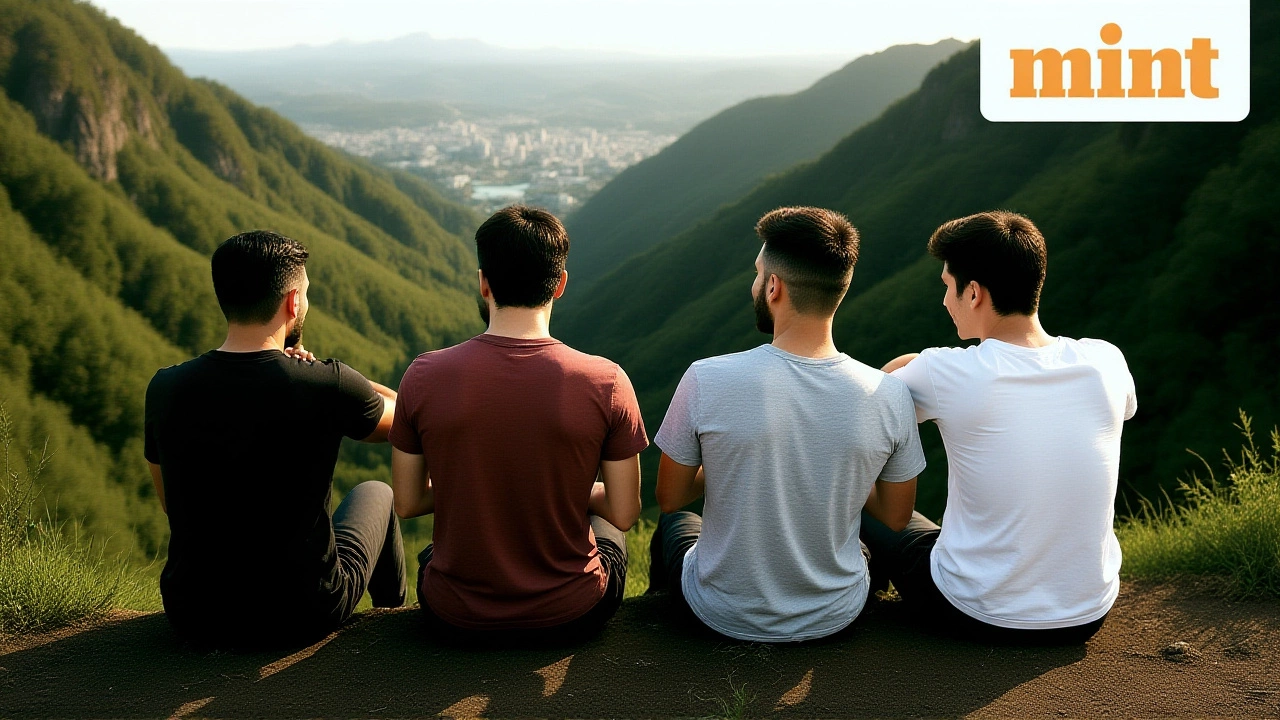On Wednesday, November 19, 2025, more than 80 countries will mark International Men's Day under the theme 'Celebrating Men and Boys' — a day not meant to compete with International Women’s Day, but to complete it. From Sydney to São Paulo, from London to Lagos, communities will gather to honor fathers, teachers, first responders, and everyday men whose quiet contributions often go unnoticed. At the heart of it all: a nine-hour global webcast, live from Sydney, running from 3:00 PM to midnight AEDT, featuring mental health advocates, educators, and survivors of male suicide. This isn’t just another awareness day. It’s a reckoning — and a reckoning long overdue.
A Day Rooted in Quiet Rebellion
The idea for International Men's Day didn’t emerge from a corporate boardroom or a UN committee. It began in the 1960s, when a handful of academics in the U.S. and Caribbean quietly argued that if women deserved a day to spotlight their struggles and triumphs, so did men. But it wasn’t until 1999 that the movement found its voice. That’s when Dr. Jerome Teelucksingh, a Trinidadian historian and university lecturer, launched the first official observance on November 19. He chose the date deliberately: the day before International Children's Day. "It wasn’t about rivalry," he told NDTV in a 2018 interview. "It was about legacy. Men are often the first teachers of boys. If we don’t see them as whole people, who will teach boys to be kind?" The day gained traction slowly — first in the Caribbean, then across Africa, then in Europe. By 2015, it was officially recognized by the United Nations as a platform for gender equity. Today, it’s no longer a footnote. It’s a movement.The Six Pillars of Purpose
According to The Times of India, the day operates on six clear pillars — not vague ideals, but actionable goals:- Recognizing men who contribute through kindness, responsibility, and leadership
- Highlighting men’s roles in families, childcare, and emotional support
- Addressing men’s physical and mental health challenges
- Promoting positive male role models in media and education
- Encouraging men to break silence around emotional pain
- Advocating for gender-balanced policies in workplaces and healthcare

Why Sydney? Why Now?
The 2025 global webcast isn’t just a livestream. It’s a statement. Sydney was chosen not for its skyline, but for its time zone. With the event running from 3 PM to midnight AEDT, it overlaps with prime hours in Asia, the Americas, and Europe — making it the first truly global men’s event in real time. Over 40 speakers are confirmed, including Dr. Michael Kimmel, sociologist and author of Manhood in America, and Dr. Pauline Chen, a trauma therapist who works with incarcerated men. The event will also feature testimonials from fathers who lost sons to suicide, and young men who found therapy after years of silence. The International Men's Day official website insists participation is free — but registration is required. "We’re not selling tickets," says organizer Liam Carter. "We’re handing out keys. Keys to conversations that have been locked away for generations."A Complementary, Not Competitive, Mission
One of the most persistent myths about International Men's Day is that it’s a backlash against feminism. That’s simply untrue. The Times of India makes this clear: "The intention is not comparison but a balanced approach to gender-related discussions." In fact, many feminist organizations — including the UK’s Women’s Equality Party and the U.S.-based Ms. Foundation — have issued joint statements supporting the day. "Gender equality isn’t a zero-sum game," says activist Elena Ruiz. "When men are allowed to be vulnerable, everyone benefits. Daughters see healthier models. Sons learn empathy isn’t weakness. Wives stop carrying the emotional load alone." The data backs this up. A 2024 study from the University of Melbourne found that communities with active International Men's Day programs saw a 22% increase in men seeking mental health services within six months — and a 17% drop in domestic conflict reports.
What Comes Next?
The 2025 webcast won’t be the end. It’s the beginning. Organizers are already planning a 2026 initiative: "Men’s Wellbeing in Schools," a global curriculum pilot with partners in Canada, South Africa, and India. The goal? To embed emotional literacy into primary education — not as an elective, but as a core subject. Meanwhile, in the UK, Parliament is reviewing a bill that would require all public health campaigns to include male-specific mental health messaging — a direct result of pressure from International Men's Day advocates. And in homes? In quiet kitchens and late-night phone calls, something’s shifting. Men are texting their brothers: "You good?" And for the first time, they’re answering honestly.Frequently Asked Questions
Why is International Men's Day on November 19?
November 19 was chosen by Dr. Jerome Teelucksingh to precede International Children's Day on November 20, symbolizing the connection between men as fathers, mentors, and role models for boys. The date also avoids conflicts with other major observances and allows global coordination across time zones, especially for the annual Sydney webcast.
How does International Men's Day differ from International Women's Day?
While International Women’s Day focuses on dismantling systemic barriers women face, International Men’s Day centers on men’s emotional health, societal expectations, and often-overlooked contributions — especially in caregiving and emotional labor. Both aim for equity, but through different lenses. They’re complementary, not competing.
What are the biggest challenges men and boys face today?
Men are significantly more likely to die by suicide, less likely to seek mental health care, and often pressured to suppress vulnerability. Social norms around masculinity contribute to isolation, workplace burnout, and strained family relationships. In many countries, men account for over 75% of workplace fatalities and are disproportionately affected by homelessness and incarceration.
How can individuals get involved in International Men's Day?
Register for the free Sydney webcast, share stories of positive male role models on social media using #CelebratingMenAndBoys, or simply check in on a man in your life — a father, friend, or coworker. Many communities host local events: volunteering at men’s shelters, organizing men’s health fairs, or starting conversations in schools and workplaces.
Is International Men's Day only for men?
No. The day is for everyone who cares about men’s well-being — women, non-binary people, and children alike. Mothers who raise sons, teachers who guide young boys, partners who support emotionally struggling men — all are vital to the movement. True progress requires collective effort, not division.
What impact has the Sydney webcast had in past years?
The 2024 webcast reached over 8 million viewers globally, with 1.2 million registrations. Post-event surveys showed a 34% increase in men reporting they’d spoken to a counselor or friend about mental health in the following month. It also spurred three new national mental health hotlines in developing nations, funded by private donors inspired by the event.




